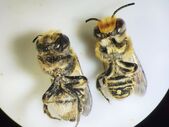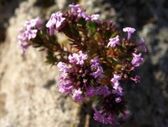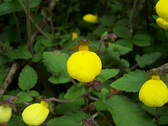Research in the lab aims to understand the mechanisms behind the rapid speciation processes that produce high species richness in specific areas. Combining classical taxonomy with an array of modern molecular techniques, our research focuses in three main, complementary lines: (i) understanding to what extent geological factors drive speciation using islands as models, (ii) characterizing the morphological variation associated with rapid diversifications, and (iii) applying DNA metabarcoding and high-throughput sequencing to study the diversity of plants used by solitary bees.
News
- March - The lab went to the Association of Southeastern Biologists Annual Meeting in Chattanooga, Tennessee! Pam gave a talk, and Erica, Clara, and Anthony presented posters. All three students got travel awards from the Susan Weinstein Fund and Clara and Erica also got travel awards from the Southern Appalachian Botanical Society. Congratulations!
- February - Erica presented a poster at the Undergraduate Research Day at the WV Capitol this month! She talked about her work on identifying wild ramp pollinators using the COI barcode.
- January - Pam was invited to present her ramp research at the WV Entomological Society Winter Meeting in Ripley, WV.
- November - Pam and colleagues published a new Micromeria species from Tenerife! The paper was published this month in the journal Phytotaxa.
- October - Erica was awarded the 2023-2024 Gould Botany Scholarship ($400). Congratulations!
- August - Moses presented his MS research at the Ecological Society of America Annual Meeting in Portland, Oregon. Rebecca Foy has returned to the lab as a grad student, and we have two new undergrads joining as well. Clara will be a student-worker in the Herbarium, and Anthony will be helping with digitization of our fungi collection. Welcome!
- July - Zach's first publication is out! We published a protocol to produce 3D images from 3D herbarium specimens using free photogrammetry software in the journal Castanea. Also, Pam got to go to the Canary Islands for a week to do fieldwork!
- April - Erica, Jacob, and Moses presented at the Marshall University Research Days and at the College of Science Research Expo! Also, Pam was awarded a NASA WV EPSCoR Seed Grant to study ramp's pollinators, and published a new subspecies of Calceolaria from Peru!
- March - Erica, Jacob, and Pam presented at the Association of Southeastern Biologists Annual Conference in Winston-Salem, North Carolina! - Erica and Jacob were each awarded the Weinstein Travel Award ($200) to attend this meeting. Congrats!
- January - New publication out! Pam co-authored a paper with Portuguese and Spanish collaborators "DNA barcodes of Iberian Trichoptera, documenting biodiversity of freshwater biomonitoring in a Mediterranean hotspot" published in Biodiversity Data Journal.
Current research
Taxonomy of Calceolaria (Calceolariaceae)Calceolaria is a diverse genus with ca. 250 species distributed from Central Mexico to Chile and Southern Argentina...
|
Proudly powered by Weebly



